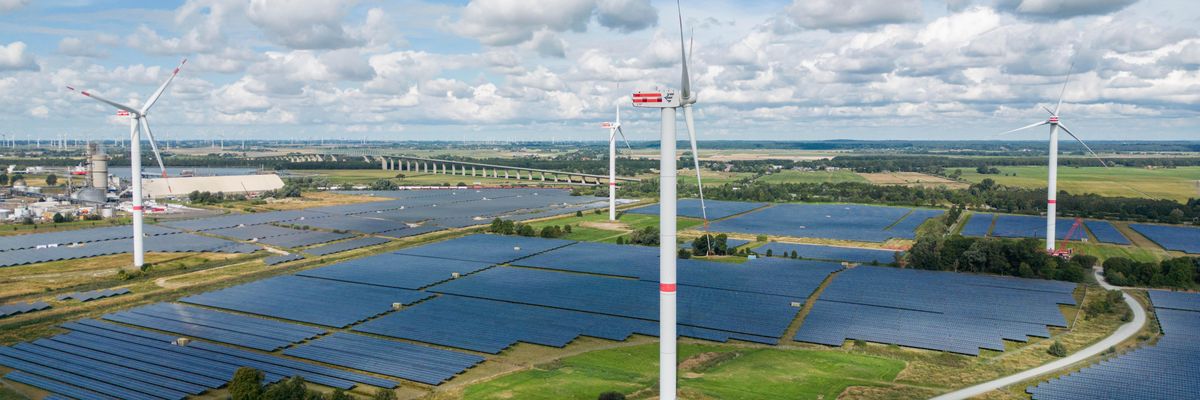The European Commission on Wednesday approved the German government's EUR28 billion ($29.69 billion) plan to rapidly expand clean energy production.
According to Reuters: "The scheme pays a premium to renewable energy producers, on top of the market price they receive for selling their power. Small generators can receive a feed-in-tariff providing a guaranteed price for their electricity."
The German Renewable Energy Act 2023, which replaces an existing support measure for green energy, runs until 2026 and is aimed at meeting Germany's goal of generating 80% of its electricity from wind, solar, and other renewable sources by 2030.
The European Commission called the policy "necessary and appropriate" to boost the supply of clean energy and slash planet-heating pollution. Officials said that the plan's environmental benefits outweigh its potential negative impacts on competition.
"The German Renewable Energy Act 2023 scheme will contribute to further decarbonize electricity production," Margrethe Vestager, the European Union's competition policy chief, said in a statement.
Swiftly increasing clean energy production is essential to achieving Germany's objective of reaching net-zero greenhouse gas emissions by 2045. It is also key to ameliorating potential energy shortages stemming from Russia's decision to cut off most of the gas it sends to Europe amid the war in Ukraine and the E.U.'s recent ban on seaborne crude oil from Russia.
As Reuters reported:
Berlin's response to Europe's energy crunch has attracted criticism from some E.U. countries. Concerns focussed on Germany's broader plan to spend up to EUR200 billion [$212.36 billion] in subsidies to shield consumers and businesses from soaring energy costs--a sum that many other states cannot afford, and which some said would distort competition in the European Union's single market.
The Commission said Berlin's renewable state support was limited to the "minimum necessary" and included safeguards to minimize competition distortions. Companies must bid for the aid in government tenders.
To avoid compensating companies twice, Germany will also phase out existing support for renewable producers in times of negative power prices by 2027.
The European Commission's approval of Germany's new renewable support plan--and a nearly 50% surge in solar installations across the E.U. this year--highlights green progress on the continent.
However, it comes after E.U. policymakers--in an attempt to reduce reliance on dirty energy from Russia--moved to expand fossil fuel infrastructure across Europe, with a focus on building capacity to accept higher volumes of fracked gas from the United States and other countries.
Soon after Russia invaded Ukraine in late February, progressives urged governments around the globe to treat the war as a catalyst for accelerating clean energy efforts. As researchers warned earlier this year, scaling up non-Russian fossil fuels will lock in decades of heat-trapping emissions at a time when the window to slash greenhouse gas pollution and avert the most catastrophic effects of the climate crisis is rapidly closing.
While greater quantities of wind and solar power are welcome, a simultaneous increase in dirty energy consumption runs counter to the goal of limiting global temperature rise to 1.5degC above preindustrial levels--beyond which impacts will grow progressively worse for hundreds of millions of people, particularly those living in impoverished nations who have done the least to cause the crisis.
A desperately needed worldwide clean energy transition remains far behind schedule. Despite overwhelming evidence that extracting and burning more coal, oil, and gas will exacerbate deadly climate chaos, the fossil fuel industry--supported by trillions of dollars in public subsidies each year--has no plans to slow down this decade.




